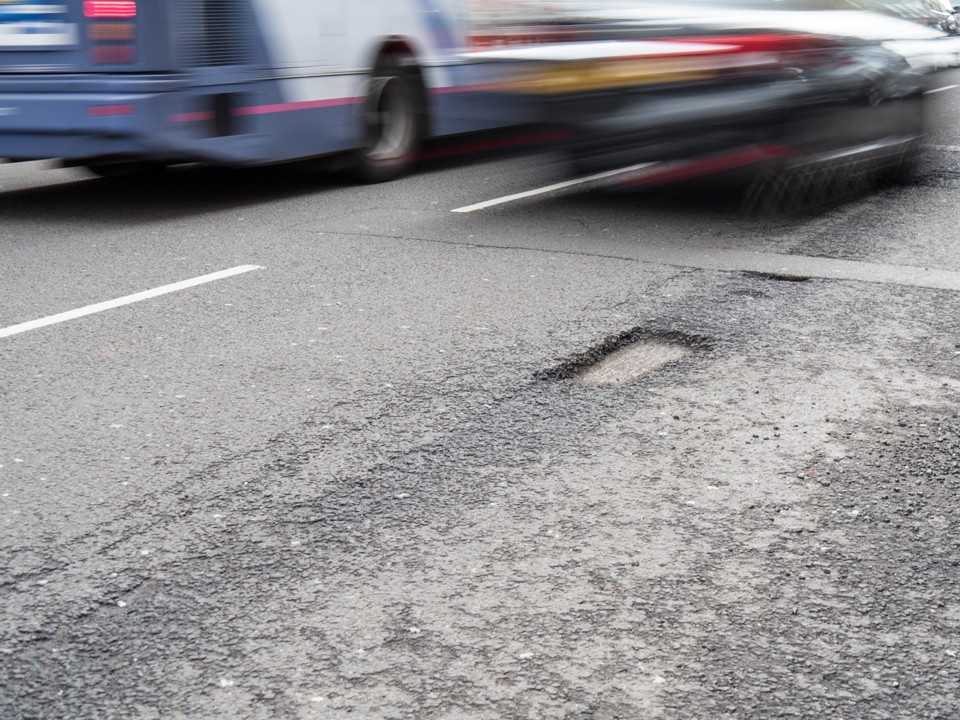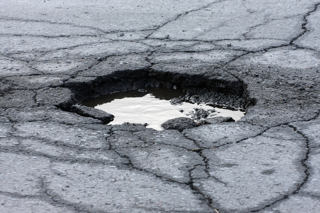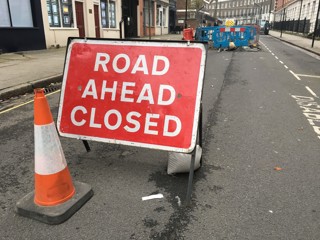Half of drivers (49%) say the condition of local roads has deteriorated since last year, primarily as a result of potholes and other road-surface problems.
Only one in 10 (11%) believe the roads in their area have improved, with around four-in-10 (40%) saying there was no real change in the past 12 months, according to the 2019 RAC Report on Motoring.
There appears to be a clear town-versus-country divide in terms of road maintenance with drivers based in rural locations being almost 10% more likely to say their local road conditions have worsened in the past 12 months (rural 58% v UK average 49%).
Meanwhile, 25% of London-based motorists say conditions are in fact better this year, against the UK-wide average of 11%.
While potholes and related road-surface problems take most of the blame for worsening conditions, they are not drivers’ sole concerns.
There has been a sharp rise in dissatisfaction about grass and foliage maintenance on local roadsides, with 22% of drivers saying this is one reason conditions are worse.
There has also been a doubling in the proportion of motorists who say signage visibility on local roads has deteriorated (8% to 17%). The RAC believes these two issues may be linked, with substandard foliage maintenance leading to an increase in signs being obscured by vegetation.
Growing sense of resentment
The research also highlights a growing sense of resentment among eight in 10 drivers (83%), or the equivalent of 31m people – who say the quality of roads should be better given the amount of tax they hand over to the Government every year.
Almost as many drivers (77%) favour having at least a chunk of their existing motoring taxes ring-fenced to fund local road maintenance.
RAC head of roads policy Nicholas Lyes said: “The state of our roads is always one of the biggest bugbears for drivers. This year our research findings showed a third of drivers (33%) we surveyed listed the condition and maintenance of local roads as one of their top four concerns from a list of 20 motoring issues.
“Despite data from our patrols revealing fewer of the breakdowns they have attended this year have been related to pothole damage, it seems that drivers still feel that road surfaces are not as good as they should be.
“Those living in rural areas definitely feel more hard done by, perhaps because they rely on their cars more than those in towns and cities so they are more inclined to notice defects that hinder their journeys.”
Lyles says there is also a very clear divide between opinions about the condition of local roads and motorways and dual carriageways with local roads appearing to be in a far worse state than their major road counterparts. “This points towards the difference in the way both are funded with only major roads having certainty of funding from central government,” he said.
“We believe local roads are just as vital to the UK’s economy so should be treated in a similar way which would allow local authorities to plan routine maintenance rather just filling in potholes as they appear.”
This idea is popular with motorists as more than three-quarters (77%) of those questioned said they would like to see a proportion of current motoring taxation ring-fenced to fund maintenance of local roads.
The 2019 RAC Report on Motoring research highlighted widespread support among motorists for the Government’s plans to use all money collected from Vehicle Excise Duty for the new National Roads Fund: 72% think this is a good idea.
From 2020-21, vehicle excise duty (VED) receipts will be ringfenced for use on strategic and major routes to increase capacity on the network to future-proof anticipated increased traffic volumes as well as to improve maintenance. The strategic road network presently carries around a third of all traffic while making up just 2% of all roads.
























Login to comment
Comments
No comments have been made yet.